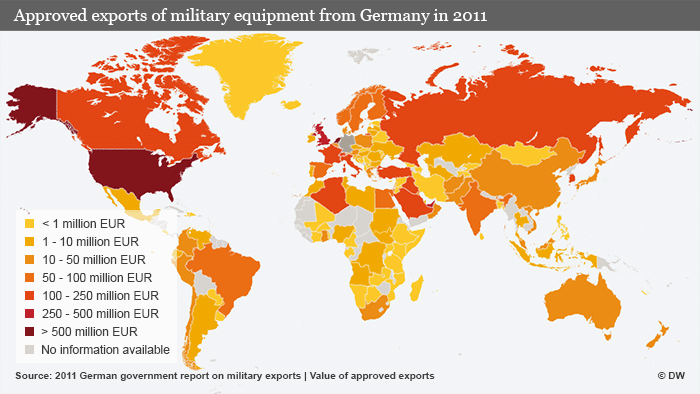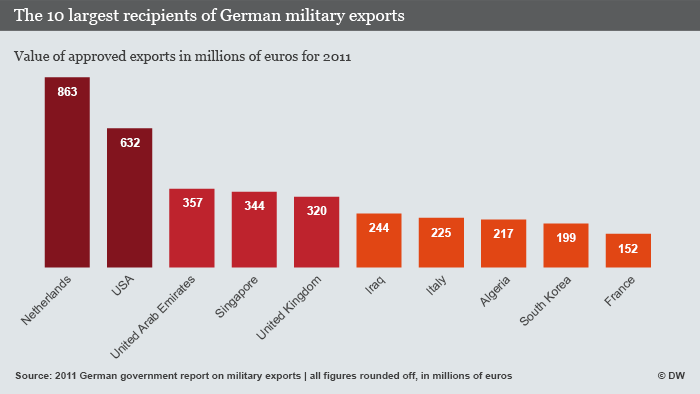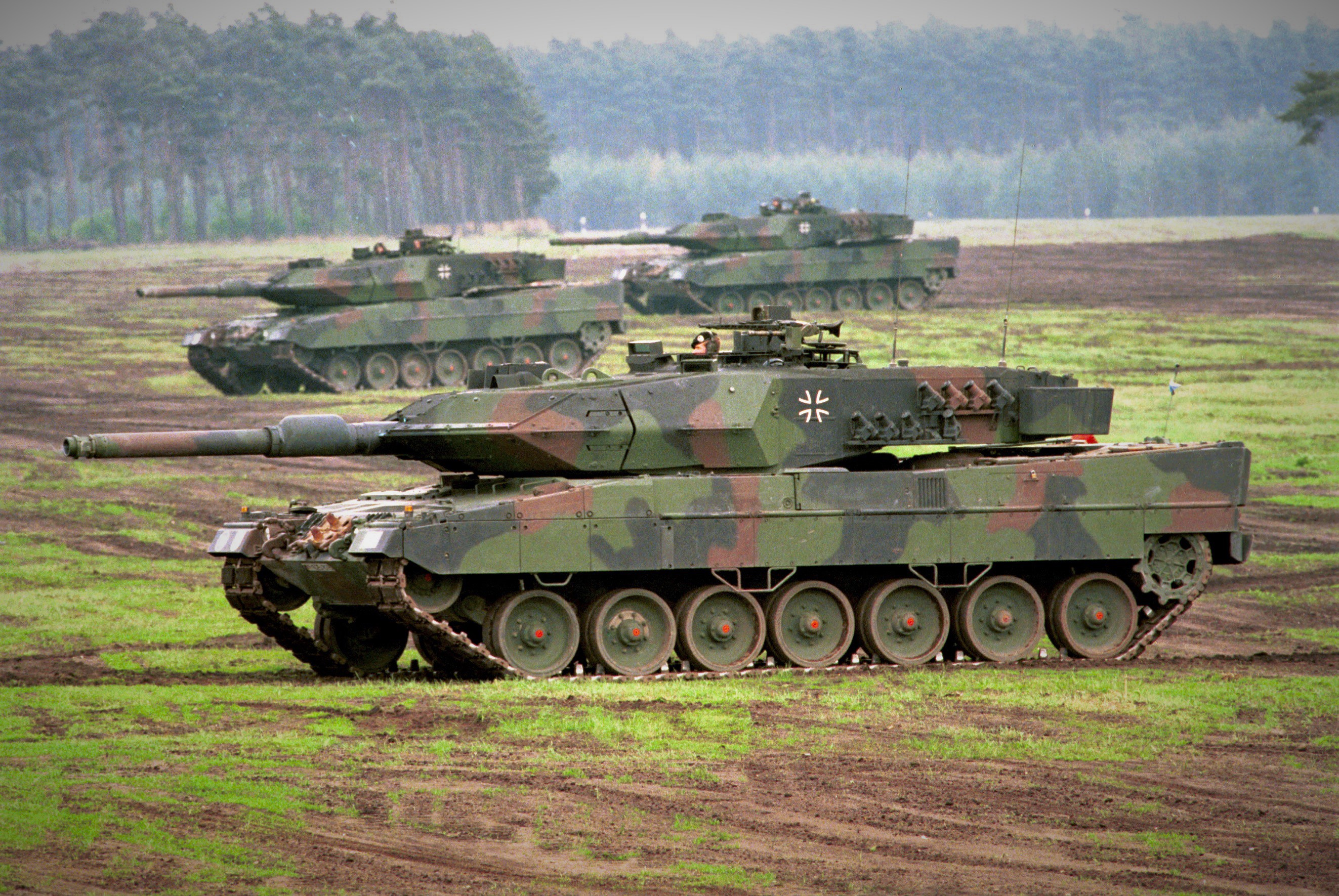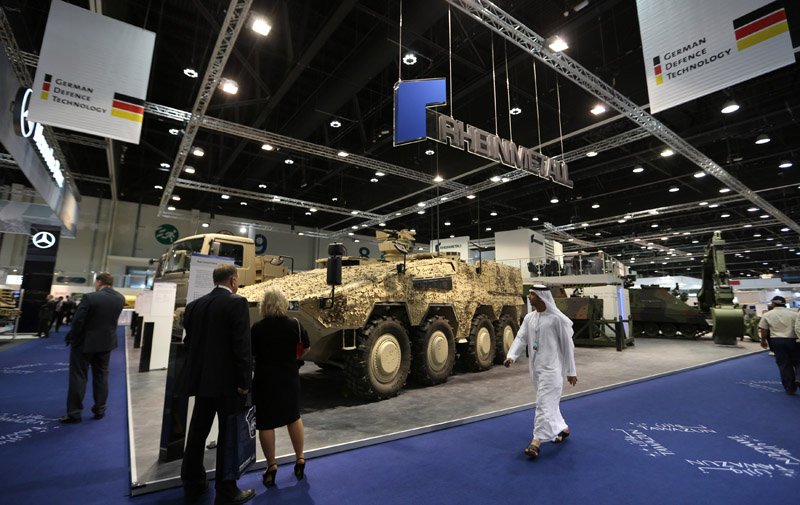Democratic countries increasingly court controversy when they export armaments to non-democratic countries. One country in particular, Germany, has had to forsake extremely lucrative contracts due to political controversy relating to proposed sales of military equipment to non-democratic Middle Eastern countries. While the underlying motivations for scrapping such arms deals are laudable, the inconsistency of their application raises serious questions about their purposes and viability.

Despite the disestablishment of Germany’s armaments industry after the Second World War, Germany was one of the largest and most prominent exporters of armaments during the Cold War and retains that distinction throughout the post-Cold War period. For the last thirteen years, Germany has frequently been the third-largest exporter of armaments behind the United States and Russia. While many recently designed and produced German armaments have only been adopted by Germany itself and a few other countries, some German products have been extremely successful in the export market. Germany is a leading designer and producer of tanks, logistics trucks, submarines, small arms, and plays a major role in pan-European aerospace projects that produce everything ranging from fighter jets to satellites.
Most countries with a military have equipment that is German in origin, or equipment that utilizes German components, particularly engines for land vehicles and ships. Canada is also a user of Germany defence products. The Canadian Forces use German utility vehicles, trucks, tanks, grenade launchers, remote controlled weapons stations, and will soon have German-designed replenishment ships.

Germany’s defense industry, in its direct (i.e. sale of armaments) and indirect (i.e. sale of components such as engines) exports has been extremely lucrative. The armaments are considered to be extremely reliable and amongst the best in terms of capabilities and quality. But Germany is not the only economically-advanced and wealthy Western country to have an advanced armaments industry. As a result, German defence firms compete with other Western firms, frequently firms from NATO allies in the UK, US and France, in order to balance their books and make a profit. Moreover, traditionally dominant Western firms have new commercial rivals in countries such as Turkey, China, and South Korea. As a result, German firms need to sell armaments to anyone who wants them, including non-democratic countries, to maintain expat levels. In recent years, such sales have become increasingly controversial given that exports to non-NATO and non-‘NATO equivalent’ countries are becoming increasingly common. Such sales can only be made with the approval of the Federal Security Council, headed by the German Chancellor. The main bone of contention between the government and Germans advocating serious restrictions on arms exports has been the sale of tanks to Saudi Arabia.

Saudi Arabia operates large numbers of increasingly obsolescent tanks. Given Riyadh’s deep pockets, from 2010 onwards it sought to purchase between 600 and 800 Leopard 2 tanks, the same tank used by the Canadian Forces. Unlike Canada, however, the Saudis were interested in new-build tanks, which would result in an order (including support costs) estimated at around $25 billion. Such an order would result in the creation of hundreds, if not thousands, of medium-term German jobs and would lead to lucrative long-term support contracts. Such an order became even more lucrative given the (then and now) ongoing economic crisis. In such an international economic climate, when it is hard to think of any other country requiring, let alone ordering, such a large number of new-build tanks. Despite the economic benefits entailed, the planned sale was severely criticized by a broad section of the German public and even from members of the ruling party.
Unfortunately for those pushing for the sale, the timing of the sale was not conducive. In March 2011, Saudi Arabia deployed its forces in Bahrain to help the ruling regime put down popular protests. Opponents of the deal were concerned that German-made vehicles would be used to suppress protests, a particular concern given that the Saudis were interested in a variant of the tank tailored to urban warfare. In addition, the issue of selling weapons to an Arab state that does not recognize Israel was also raised in some quarters. After a long saga, in April 2014, Germany scuttled the negotiations and effectively terminated any deal. In addition, Germany sought to delay, it not cancel, a French sale of armoured vehicles to Saudi Arabia through restrictions on the re-export of the German chassis and engines the vehicles utilize.
The cancellation of the tank sale was not unexpected given the drawn-out controversy it caused. Nevertheless, it entailed a major arms exporter forgoing a massive contract for political reasons mainly relating to the regime of the recipient state. Some would applaud this German action but the cancellation raises serious questions about the consistency of Germany arms export policy. Germany has sold Saudi Arabia large numbers of small arms, advanced air-to-air missiles, vehicle and marine engines, UAVs, and other equipment in the last decade.

Many other non-democratic Arab states have also purchased armaments from Germany in recent years. Notably, at the same time as scuttling the Saudi tank order, Germany sold new-build Leopard tanks and PzH2000 self-propelled artillery to Qatar, even though that country meets the same conditions as Saudi Arabia. Qatar is non-democratic, does not have a formal peace treaty with Israel, and also requested a variant of the tank tailored to urban warfare. Furthermore, Germany agreed to sell cash-strapped Egypt two Type 209 submarines immediately after the 2012 election that brought now-ousted President Mohammad Morsi to power. In February 2014, reports emerged that Egypt will be procuring two additional submarines even though it has transitioned to an effective military dictatorship. Despite recent political tumult in the Middle East, German firms continue to actively promote their equipment at key regional arms shows such as IDEX in the United Arab Emirates and SOFEX in Jordan.
An additional example of the inconsistency in Germany’s arms export policy can be seen in a series of sales to Algeria. Despite Algiers’ obvious faux democratic trappings, Germany has been actively selling armaments to the gas-rich country. In 2011, Berlin and Algiers agreed on defence collaboration and Algeria began negotiations to procure approximately 1000 wheeled armoured personnel carriers (APC) as well as naval frigates. The APC contract alone is worth over $3.5 billion and is tailored for counter-insurgency and urban warfare. The last aspect is notable as Algeria waged a brutal civil war in the 1990s after the military took power following an Islamist victory at the polls. Interestingly, the Algerian APC purchase didn’t face the same intense criticism that the Saudi tank sale faced and was finally approved in 2014.
Given such realities, German arms export policy remains focused on making a profit and keeping firms in business, notwithstanding the Saudi tank saga. The realities of an increasingly competitive arms market, declining defence budgets in Western countries including Germany, and the imperative to secure exports and jobs push German politicians to silence their pro-democratic rhetoric and sell armaments to undemocratic regimes likely to use such armaments against their own populations. Such a conclusion should not be surprising to Canadians given Canada’s recent sale of wheeled armoured personnel carriers to Saudi Arabia. Nevertheless, it poses interesting foreign policy challenges as such weapons sold to Saudi Arabia by Canada and Algeria by Germany will almost certainly be used to put down any opposition, armed or unarmed, to the ruling regimes.




